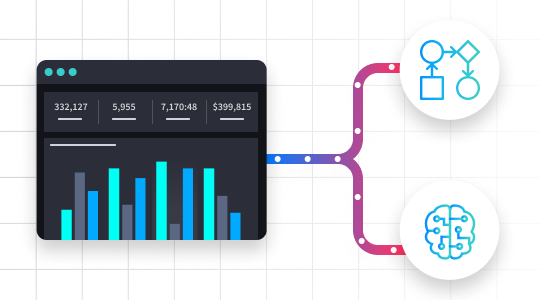The adoption of artificial intelligence (AI) in cybersecurity continues to spark intense discussions, especially around its impact on efficiency and budgets. While AI promises to streamline operations and enhance security, its implementation also brings challenges, from increased costs to the need for skilled personnel. As organizations weigh the risks and rewards, how can they maximize the potential of AI while addressing its complexities?
This final installment of our three-part blog series explores key findings from our research with Sapio and expert insights shared during the Swimlane webinar, AI Reality Check: CISOs Unpack Its Role in Cybersecurity. Join us as we dive into the tangible benefits of AI-driven efficiency, its influence on cybersecurity budgets, and the realities of navigating AI adoption in an evolving threat landscape.
Continue reading to uncover how organizations are balancing innovation with governance to embrace AI responsibly. Download the full report for a deeper look: Is AI Living Up to Its Cybersecurity Promises?
Will AI Adoption Fuel Efficiency Gains and Increased Budgets?
The integration of AI into cybersecurity is a topic of debate, with questions arising about its impact on efficiency, budgets, and the overall security landscape. Our recent research report sheds light on these concerns.

AI Automation Efficiency Gains
- Research indicates that 89% of respondents have experienced improved productivity and efficiency due to AI and LLMs.
- AI-powered automation streamlines documentation, code analysis, and threat detection, leading to substantial time savings.
- These efficiency gains free cybersecurity professionals to focus on more strategic and complex initiatives.
Increased Budgets for AI Cybersecurity Solutions
- While AI adoption can drive efficiency, it also necessitates investments in new technologies and skilled personnel.
- 33% of respondents allocate a growing portion of their cybersecurity budgets to AI-powered solutions.
- This trend suggests that the perceived value of AI in cybersecurity outweighs initial concerns about cost.
The Risk, Rewards & Reality of AI
- Risks: The rapid advancement of AI brings concerns about data privacy, potential biases in algorithms, and the need for robust governance.
- Rewards: AI promises to enhance threat detection, faster incident response, and improved overall security posture.
- Reality: AI is not a silver bullet but a powerful tool that, when used strategically and responsibly, cybersecurity can benefit.
The Balancing Act of Innovation & Responsibility: The Future of AI in Cybersecurity
While the AI landscape remains crowded with hype, the tangible benefits of its adoption in cybersecurity are becoming undeniable. Our research reveals that 90% of the surveyed cybersecurity leaders expect an increase in overall cybersecurity budgets by 2025, driven in part by the growing demand for AI-powered solutions. This indicates a clear recognition of AI’s potential to enhance operational efficiency and strengthen defenses against increasingly sophisticated cyber threats.
However, the path forward requires more than just investment in advanced technology. Organizations must navigate the complexities of AI adoption by balancing innovation with governance, risk management, and ethical use. Proper implementation ensures that AI not only serves as a tool for automation and enhanced threat detection but also operates within a framework that mitigates risks like algorithmic bias, data privacy concerns, and over-reliance on automation.
The future of cybersecurity lies in leveraging AI strategically, responsibly, and collaboratively—helping to build a digital landscape that is both resilient and secure.

Demystifying AI Agents: Fiction, Fantasy, or Future of SecOps?
Are you looking for ways to enhance your security operations efficiency and effectiveness with AI this year? If so, you’ve probably heard about AI agents. Still, you may wonder if this technology is fiction or fantasy, if AI agents can be trusted, and how agentic AI differs from generative AI.
If you’re curious about these questions, this webinar is for you. We’ll explore real-world examples of how generative and agentic AI can help you work smarter, streamlining workflows, enhancing proactive threat detection, and automating key tasks.


